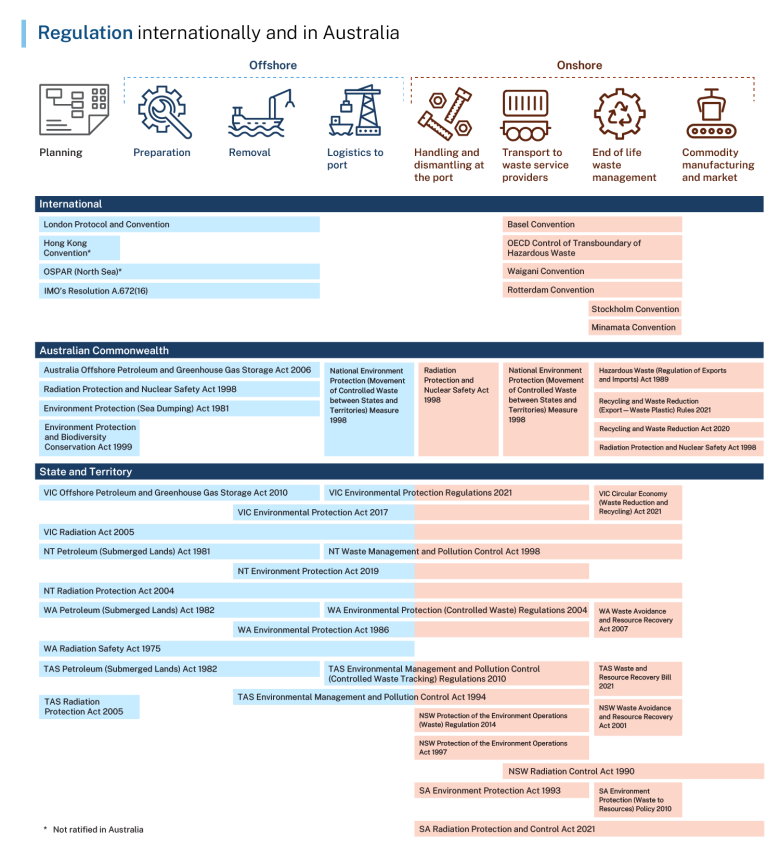Australia’s legislation governing offshore petroleum and greenhouse gas storage activities is the OPGGS Act. It regulates exploration and recovery of petroleum activities and greenhouse gas storage activities in Commonwealth waters. Industry must ensure that all decommissioning activities are compliant with Australia’s regulations. This includes early planning for decommissioning, and carrying out decommissioning activities in a timely, safe and environmentally responsible way.
The regulatory environment governing offshore decommissioning involves navigating many different pieces of federal and state legislation, and requirements under international law. Businesses participating in the decommissioning value chain therefore need to consider many different pieces of legislation that come into play when decommissioning.
Navigating regulatory complexity
The regulatory environment as it applies to decommissioning and downstream processing can be complex for companies that have not completed a decommissioning activity before.
Research commissioned to inform this roadmap shows that complexities in interpreting and complying with regulatory and legal requirements can create delays and more costs (CSIRO 2024a). For example, some infrastructure, such as pipelines, can cross jurisdictional boundaries from Commonwealth into state and territory waters. This can require multiple approvals in different jurisdictions.
This regulatory complexity bolsters the case for a coordination function within government to drive alignment and efficiency across the industry. Up until now Australia has lacked a holistic, end-to-end view of decommissioning including how it interacts with different jurisdictional needs.
In some circumstances, industry collaboration can generate efficiencies that lead to faster, more cost-effective decommissioning without compromising environmental and safety outcomes. There are examples where different operators have collaborated to bring heavy lift vessels from the Northern Hemisphere to Australia or collaborated on maintenance activities creating economies of scale. The Australian Competition and Consumer Commission (ACCC) can grant exemptions for behaviour that otherwise may breach competition law, where conduct does not substantially lessen competition or has a net public benefit.
First Nations regulatory impacts involve considering the Native Title Act 1993, along with Commonwealth and state and territory culture and heritage protection legislation, particularly if environmental risks might impact cultural and heritage sites. Industry must protect Indigenous cultural and intellectual property through all project stages.

